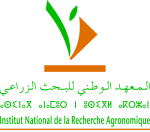National Institute of Agronomic Research Morocco - INRA Morocco
Overview: Céréales.AXE0 - WRAF
Leader:
Faouzi Bekkaoui, National Institute of Agronomic Research Morocco - INRA Morocco
Coleader: Moha Ferrahi, National Institute of Agronomic Research Morocco - INRA Morocco
Team
members: 5
Partner
organizations: 1
Budget 2025
MAD :
0
Results: 0
Axis Description
Wheat and food legumes are the most important stable crops in Morocco. They are cultivated on average of 4.2 million and 150 thousand hectares per year, respectively. However, despite significant acreage, Morocco still heavily relies on cereal and food legumes imports due to a large gap between production and consumption. On average, Morocco imports 5 to 6 million tons of cereals and 26,5 to 135,5 thousand tons of food legumes per year, depending on rainfall. Wheat productivity in the country is extremely low (<2.0t/ha) below the global average of 3.5 t/ha primarily due to several factors: (a) recurrent drought, heat and diseases associated with climate change (b) low rate of variety replacement as most of the farmers still grow old wheat varieties (c) lack of strong seed system and innovative scaling up mechanisms for adoption of improved varieties at large scale.
The overall objective of the project is enhancing food security and climate resilience for 5,000 farmers through innovative seed system and scaling mechanisms in the wheat -based production system”. It has been designed with the following four specific objectives: (1) assess the performance of the existing wheat seed system, and design, test and establish more efficient and gender responsive seed system; (2) establish context-specific and gender-responsive innovation platforms to pilot and demonstrate the impact of improved wheat and legume varieties and crop management practices on productivity, income and climate resilience; (3) rapidly develop high yielding varieties with resistance/tolerance to drought, heat, and diseases through innovative approaches; and (4) capacity development and knowledge translation for impact at scale. One sub-specific objective is to multiply the existing improved wheat varieties (recently released but not adopted) to demonstrate performance and to enhance large-scale adoption. The overall project will involve all key stakeholders, including women and women-led organizations, with a specific focus on rainfed wheat-based production system.
The key development outcomes of the project will align with the Morocco Generation Green Strategy 2020-2030 and aim to improve food security, and enhance resilience against climate change for 5,000 farmers in Morocco.
Atlas
Personnel Involved
Partners




